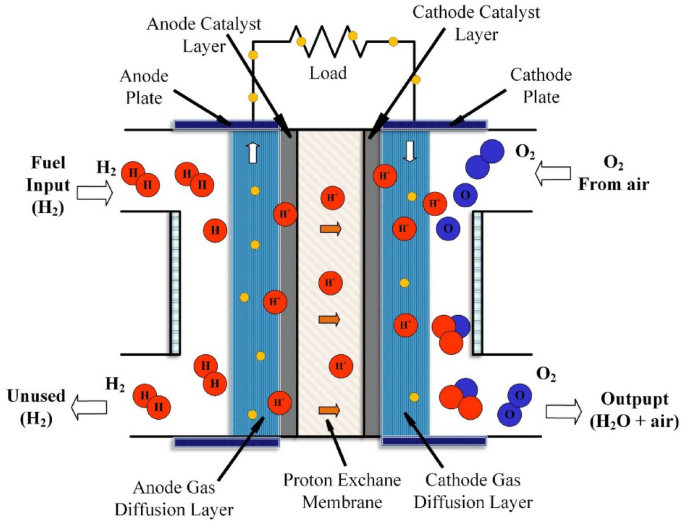Optimizing PEM Fuel Cells: Advanced Algorithms Revolutionize Parameter Estimation
Key Ideas
- PEMFCs are crucial for sustainable energy solutions, particularly in the transportation sector, but face challenges in optimal performance due to complex design variables.
- Advanced optimization algorithms like the bonobo optimizer, pelican optimization algorithm, and repairable Grey Wolf Optimization are enhancing accuracy and computational efficiency in PEMFC modeling.
- Research on PEMFC modeling and optimization has seen significant advancements, with studies focusing on parameter estimation, electrical characterization, and performance optimization.
- While these advanced algorithms show promise in improving PEMFC efficiency and reliability, challenges like scalability, robustness, and real-world validation remain to be addressed.
Proton exchange membrane fuel cells (PEMFCs) play a vital role in sustainable energy solutions, especially in the transportation sector, due to their high efficiency and low emissions. However, achieving optimal performance in PEMFCs poses challenges because of the intricate relationships among design variables. Advanced optimization algorithms are being developed to address these challenges. Researchers have introduced various advanced optimization algorithms like the bonobo optimizer, pelican optimization algorithm, repairable Grey Wolf Optimization, and many others to enhance the accuracy and computational efficiency of PEMFC modeling.
Studies have focused on improving parameter estimation, electrical characterization, and overall performance optimization of PEMFCs. While these advanced algorithms have shown promise in enhancing PEMFC efficiency and reliability, there are still challenges that need to be overcome. Issues such as scalability to larger systems, robustness in addressing high-dimensional nonlinear problems, and the need for real-world experimental validation are critical areas for further research.
The research community continues to make significant strides in optimizing PEMFCs, with a focus on developing tailored optimization techniques for these systems. By leveraging advanced algorithms, researchers aim to maximize the efficiency and reliability of PEMFCs. However, there is still a need for comprehensive comparative analyses, real-world validations, and addressing the computational challenges associated with these optimization algorithms. Overall, the ongoing advancements in PEMFC modeling and optimization signify a positive trend towards enhancing the sustainability and practical applications of fuel cell technology.
Topics
Fuel Cells
Sustainable Energy
Research Advancements
Optimization Techniques
Parameter Estimation
Algorithm Development
Fuel Cell Modeling
Latest News
